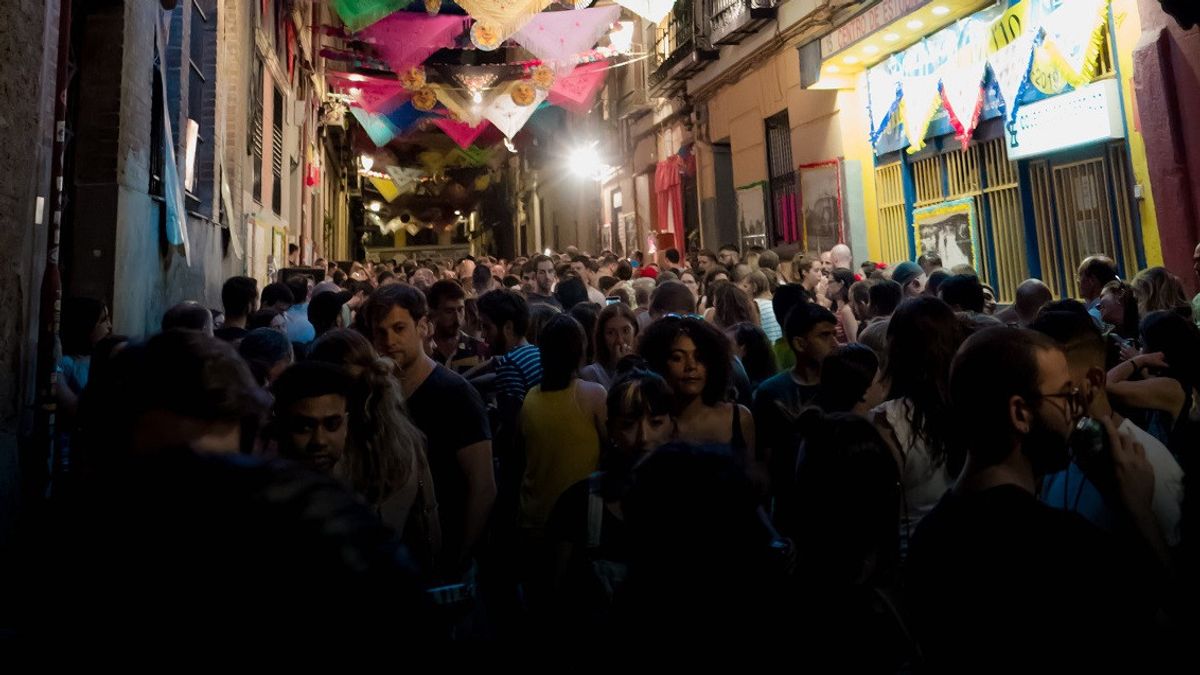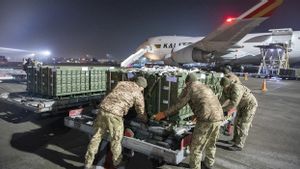JAKARTA - After undergoing emergency status and restrictions due to COVID-19, several regions in Spain began to breathe a sigh of relief and celebrate on the streets as well as the new year.
This was done in line with the revocation of the state of emergency and the easing of restrictions in several Spanish cities. Although, at the same time there are also residents who are worried about this repeal, judge it too early
Speaking to Reuters on Monday, a jubilant Spaniard shouted "freedom" dancing in the streets and partying on the beach as the COVID-19 curfew ended in most countries, following the revocation of the COVID-19 emergency status that has been in effect since October.
As new year's eve celebrations were celebrated, hundreds of people, mainly young people, gathered in Madrid's Puerta del Sol square, to applaud at midnight. While in Barcelona, revelers headed to the beach with a drink in hand.
Some wear masks despite the application of very little social distance, when people start singing, dancing, cuddling late in the joys that have been held back all along.
"Young people, like everyone else, are severely restricted. Now it's time to give us a little freedom to enjoy a little summer", said shop worker Paula Garcia, 28, on the beach in Barcelona.

But in the Basque Country, where regional authorities had asked to impose a curfew but were rejected by the courts last week, some locals were not so excited.
'It's so bad there's no emergency. People want to get out but the situation is not ready for that", said Asun Lasa, who walked along San Sebastian's waterfront, Sunday. The Basque Country has the highest infection rate in Spain at 448 per 100,000 compared to the national average of 199.
The mayor of Madrid also criticized the 'celebrations' by his citizens, including a warning of a ban on breaking rules, such as gatherings to drink in the streets.
"Freedom does not include breaking the rules", he said, referring to meetings for drinking in the street, known as 'botellones', prohibited.
As one of the worst countries of the COVID-19 pandemic in Europe, Spain has suffered 78,792 deaths from coronavirus and 3.6 million cases. However, along with the decrease in infection rates and the development of vaccination programs, it allows most of the 17 regions to lift the implementation of curfews.
To date, only four areas remain covid-19 emergency, namely the Balearic Islands, Canary Islands, Navarra, and Valencia.
"It's about time they let us out," said shop clerk Andreu Pujol, 25, also on the beach in Barcelona.
As impromptu parties sprung up downtown across the country, police reminded some revelers that drinking in the street was prohibited.
While the curfew has been lifted, most areas in Spain are restricting the opening hours of bars and restaurants, forcing people to take to the streets.
"There is no consistency between the end of emergencies and the opening hours of shops and bars. It doesn't make sense that a bar should close at 10 p.m. while people can be on the street together without any control", said Mikel Martinez, a bartender in San Sebastian.
For the record, CNN nationally Spain has a ratio of 198 cases of COVID-19 per 100,000 inhabitants, but some areas that will impose restrictions, such as Navarra, have higher rates.
Nearly 28 percent of Spaniards, or 13.2 million, have received at least one dose of the vaccine to fight Covid-19. While 12.6 percent have been fully vaccinated, according to the latest data released Friday.
The English, Chinese, Japanese, Arabic, and French versions are automatically generated by the AI. So there may still be inaccuracies in translating, please always see Indonesian as our main language. (system supported by DigitalSiber.id)













